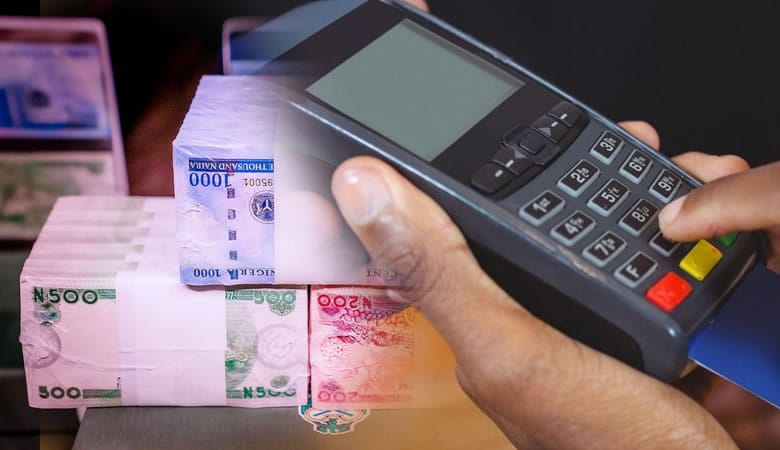Nigeria News
Propaganda War, Exorbitant POS Charges, Naira Scarcity: Are Nigerians Truly Ready for Change?

In 2022, the Central Bank of Nigeria (CBN) declared that the old N1000, N500, and N200 notes would cease to be legal tenders by 31st January 2023 following the redesigned denominations and promotion of the cashless policy.
For a country yearning for change, many Nigerians failed to meet the deadline and with the scarcity of new notes, the CBN Governor, Godwin Emefiele announced an extension to February 10th.
However, its expiration led to violent protests and riots in some parts of the country due to the inability to access Naira notes and exorbitant Point of Sale (PoS) charges.
Speaking on the arbitrary charges, a POS operator in the Ogba area of Lagos, Abimbola Babatunde, in an interview with Naija News said the difficulty in accessing cash and logistics contributed to the increase.
She said, “During the scarcity, we really faced a lot and people that are ready to give you money will charge you before you can use the money for POS business. it is a whole lot of challenges, data, transportation to the bank, paper roll, that was the reason for the increase.”
Another POS operator, Deborah Anozie corroborated the claims, saying the high charges were still a result of insufficient funds given to them in the banks and different means of sourcing for cash.
She said, “Sometimes I usually buy 100000 for 20000 from market women and supermarkets. I use transportation looking for cash, soI include all my expenses in the charges”
Propaganda War
In the wake of the Naira crunch, there were all forms of false information, online and offline, on issues relating to the currency swap, banks hiding new Naira notes in vaults, as well as selling to POS operators.
Abimbola said, “I also heard that banks were selling money but I cannot say it is true or not because I didn’t have any banker that gave me money that period. I went to shops that sell provision and they usually charge me 3000 for 50,000”
Debrah said, “Getting money from banks was difficult, banks were really strict with POS operators, except people they have a personal relationship with, they can assist in giving you more money and we give them a token for appreciation but they were not selling Naira notes”
Naija News contacted some bank officials on the propaganda of selling Naira notes but they declined to speak on the development saying it is against the oath of the financial institution.
A source said, “Truthfully, no banker would come out and talk about it in a way. There is an oath that stops us from discussing issues of the financial institution to the public and if you’re caught or your name mistakenly gets out there, it’s another problem”
POS Operators Still Charging High Despite Availability Of Cash
Naija News monitored some POS merchants in the Ojodu Berger area of Lagos and discovered they charged between N300 and N400 for ₦5,000 withdrawals, despite CBN directives.
An anonymous POS merchant said, “The challenge now is that when we get to the bank, you can’t collect more than 20k you can imagine if you don’t have more than one bank, that means you will go home with only 20k. Currently, we now charge 300- 200 for N5000 because of the stress but if we can collect N300,000 – 500, 000 at a goal the charges will be back to 100”
Another said, “We are charging 100 for a thousand Naira. If cash was available, there would be no reason for increasing the charges. I have two staff and I can’t sack them because of Naira scarcity instead, I opted for means to get money”
One of the POS merchants also disclosed that a bank recently paid her with N500 mints. With the December 31st deadline issued by the Supreme Court over the legal status of the old naira notes, the redesigned Naira notes are not available in the public.
The Naira crunch period was marred with different corruption and many Nigerians have blamed the commercial banks, POS operators, CBN, and Federal government, sadly Nigerians are not really ready for the change they are seeking both in the society and the political space.
Speaking on the development, the Peoples Democratic Party, (PDP) governorship candidate in Ogun State, Segun Sowunmi said, “The POS merchants are business people and it is the nature of business people to make money and take advantage of situations. They failed to act ethically but the responsibility of regulation belongs to the federal government.
“The change Nigerians are seeking must start gradually, it must be incremental and must start with everybody. The period of the Naira crunch was just a mess, not well planned, and those who introduced the policy should be blamed.”






